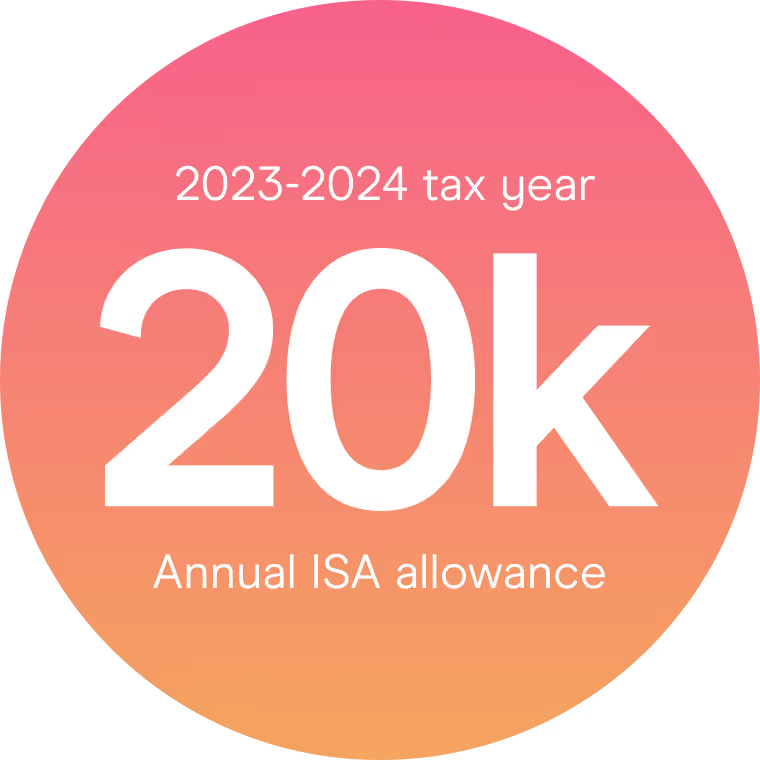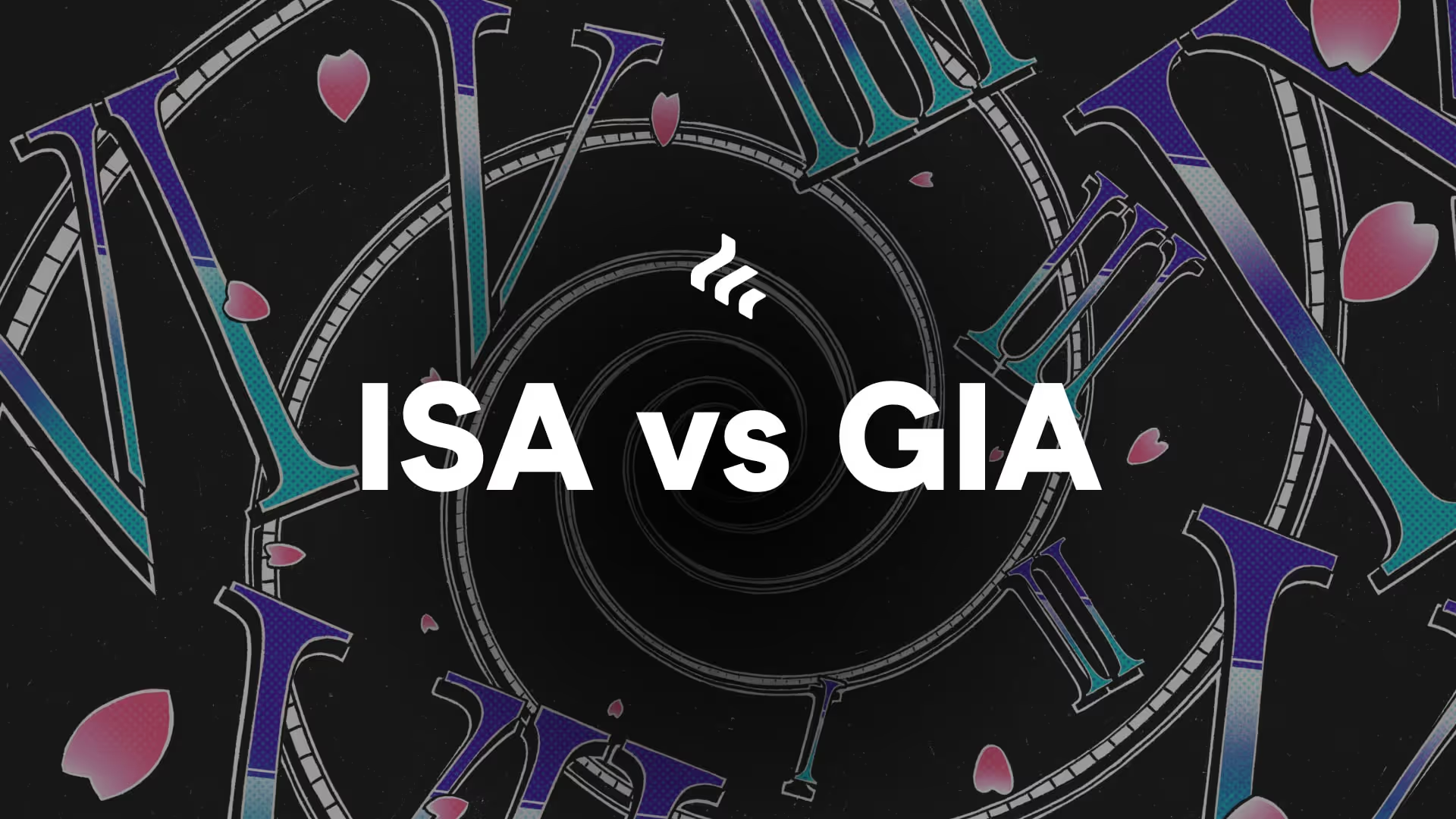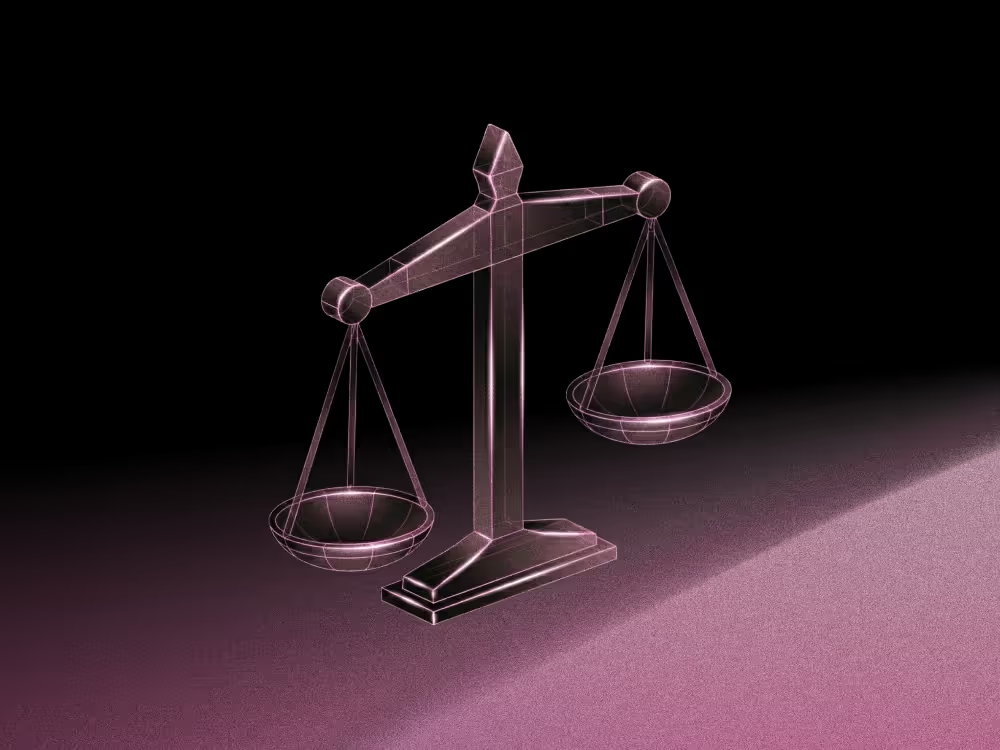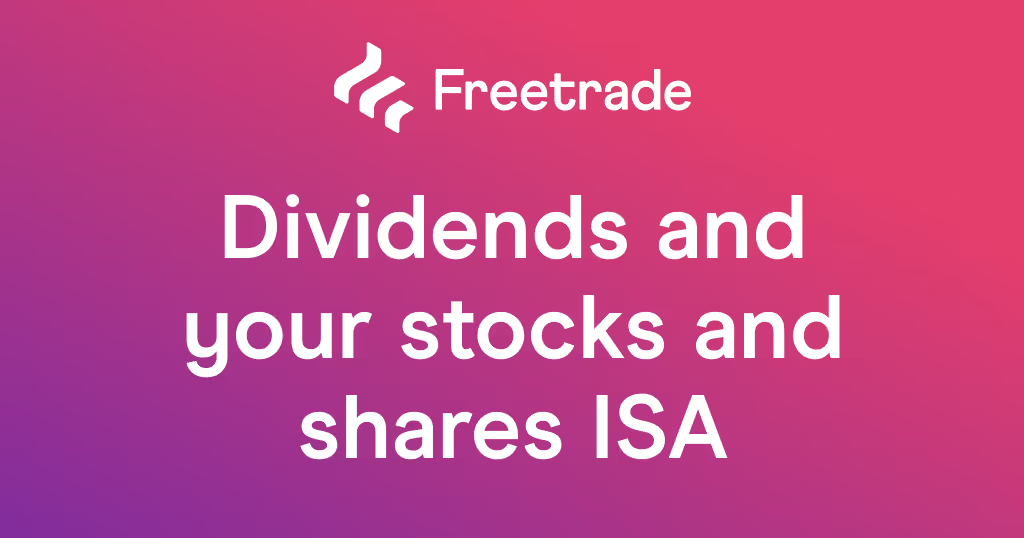1999. Is it a year you remember?
I was wearing fluorescent outfits to school discos and crimping my hair. So, memorable? Yes. But fashionable? No.
But 1999 was a big year for another reason.
And that's the birth of the ISA (or individual savings account).
ISAs were introduced by the UK government to help savers and investors shelter their money from tax in a tax-efficient way, and in turn, encourage us to save more.
Back then you could protect £7,000 from income tax and capital gains tax. But that number's gotten a much bigger boost in recent years, and the current ISA allowance is much more generous at £20,000 for the 2023/24 tax year.
And it's not just the ISA's annual allowance that's changed, there are a wide range of ISAs available now, each with slightly different features and benefits.
Before we start it’s important to know this article is not personal financial advice and that tax rules for ISA accounts can change and their benefits depend on your individual circumstances. It’s also important to understand that the value of your investments can rise and fall, and you may get back less than you invested. For more information, a financial advisor can help you better understand the investing decisions that might be right for you.
Read more:
Mistakes to avoid when transferring your ISA
Dividends and your stocks and shares ISA
Stocks and shares ISA rules
How do ISAs work?
ISAs are tax-efficient accounts. This means that whatever is inside your ISA be it cash, investments or a bit of both are protected from a few big UK taxes.
Inside an ISA you won’t have to pay:
- Income tax on dividends or savings interest
- Capital gains tax if you sell your investments for a profit
ISAs go by a few names and the one you’ll likely see a lot of is ‘tax wrapper’. Just like with a sweet wrapper, whatever’s on the inside of the wrapper is protected.
How much can you put in an ISA? Cue the ISA allowance.
Each tax year HMRC sets an ISA allowance and it’s the total amount of money you can put into all of your ISAs that year.
As we mentioned above the ISA allowance for the 2023/24 tax year is £20,000. And this can be split across the full range of ISAs if you'd like.

What are the different types of ISAs?
Here’s a short and sweet comparison of the different types of ISAs in the UK.
1. Stocks & shares ISA
Stocks & shares ISAs (sometimes called ‘investment ISAs’ or ‘share dealing ISAs’) are accounts that protect your investments and any investment growth from owing taxes.
They are an ISA account for those looking to invest their savings by making stock market investments, with the goal of achieving potential financial returns that could be higher than interest rates from traditional savings account.
What do we mean by long-term?
When you invest you should be happy to leave your money invested for a few years but the longer the better.
2. Cash ISA
Cash ISAs are designed as a home for your cash savings.
We think it’s best to think of cash savings as money you’ll probably need to use in the immediate future (say within the next few years).
This could be your rainy-day fund or holiday savings. And the main proviso is that you need to know the nominal value of your cash (i.e. its face value) won’t change, on paper your £1,000 will still be £1,000.
But while cash tends to hold its value in the short term, when it comes to growing your savings, keeping everything as cash is unlikely to be the best option.
Unless the interest rate you are getting on your cash is higher than the rate of inflation, left as cash, your money is likely to be worth less in the future. Your £1,000 won’t get you as far as it did a few years ago. That means in real terms, your £1,000 is now actually worth less.
Given the higher levels of inflation we’re seeing at the moment, it could be a good idea to check in with your cash savings and whether these are still working in favour of your financial goals.
Read more:
Saving vs investing
Is crypto right for your ISA?
2023 ISA income investing
3. Help to Buy ISA
A Help to Buy ISA is a type of cash savings ISA designed specifically to help first time home buyers save up for their mortgage deposit.
Help to Buy ISAs have been closed to new applicants since 2019. However, if you already had one at this point, you can keep contributing to it until 30 November 2029. Remember though, you cannot use the money saved up in a Help to Buy ISA to purchase any types of asset you please. This account is restricted to saving money for the purchase of a home.
You can save up to £200 a month in a Help to Buy ISA and the government will pay a 25% bonus applied to the amount you've saved (up to a maximum bonus of £3,000) when you use your Help to Buy for a mortgage deposit.
The scheme is gradually being wound down which means you have until 1 December 2030 to claim the bonus. If buying a house is further away than this you could always transfer your Help to Buy ISA to a Lifetime ISA (see below).
It's worth noting that because a Help to Buy ISA is a cash ISA you can't contribute to both ISAs in the same tax year.
4. Lifetime ISA (LISA)
Lifetime ISAs were introduced to offer us a bit more flexibility when it comes to saving for the future.
Similar to Help to Buy ISAs, Lifetime ISAs are designed to help you save for your first house and can go towards your mortgage deposit. The government will also provide a 25% bonus to your contributions. But Lifetime ISAs aren't exclusively for buying a home.
This individual savings account can also be used to save for later life, let's say to dip into it for income at retirement. With a Lifetime ISA, there's an age limit in place. You can take money out of it from the age of 60.
Lifetime ISAs come with quite a few rules and regulations, including a specified value of the house you can buy with it. It's definitely worth reading up on these before putting any money in.
Current rules for Lifetime ISA withdrawals are that you decide you'd like to take your money out and it's not to buy your first home or you haven't yet turned 60, you'll pay a 25% withdrawal penalty (which takes back the 25% government bonus). While these are basic rules, it's important to keep them front of mind if your financial goals require you have access to money sooner than the Lifetime ISA can offer.
5. Innovative Finance ISA
Innovative Finance ISAs (IFISAs) are aimed at a set of investors known as ‘restricted investors'.
When you see this label, the range of investments available will most likely be higher risk and aimed at those who clearly understand the level of risk they are taking and can afford to withstand any losses.
Innovative finance ISAs don't hold your everyday investments, they hold peer-to-peer loans which match up investors (those willing to lend) with borrowers (often businesses).
With peer-to-peer loans you lend directly, cutting out the bank - and this is where the potential for higher returns (but a lot of additional risk) comes from. But it also means your investments might not be protected by the FSCS (like they would be with a cash or stocks & shares ISA). This means that if the platform were to crash (a few have in recent years) you'd lose your money.
How to choose the best ISA for you?
When thinking about which type of ISA to choose, it's best to think about which one gets you closest to your goal. And remember, you don't have to choose just one ISA per tax year. Your allowance will be split across however many ISAs you have, but
What is your ISA for?
- Are looking for a savings vehicle for the future but without anything specific in mind, such as a house deposit or retirement?
- Are you looking for an alternative to an everyday savings account?
- Are you looking to make more of your savings allowance by investing?
- Do you need your ISA to be flexible in terms of what you can spend it on and when you can use it?
- Do you want to be able to hold cash and investments in a tax-free savings account at the same time?
Depending on your answer, it's likely one ISA starts to seem like a more obvious choice.
Remember too, you can mix and match your ISAs and spread your £20,000 ISA annual limit across different types of ISAs.
How to transfer an ISA
Decided to postpone the round the world trip and invest the cash instead?
Not necessarily a decision many of us will face, but if we do, the good news is which ISA we have can change too (if needed).
Perhaps a cash ISA looked like the obvious option a few years ago but now a stocks & shares ISA looks closer to your investment goals.
Check with your current provider (and future ISA provider) first, but you can more often than not, transfer one ISA into another or to another provider.
This is often something used by those that have been on the ISA scene for a while and have collected a few different ISAs along the way. You could potentially transfer your ISAs to the same platform and keep them in one place. Often, this can be fully done with an online transfer too.
The more rules an ISA comes with (e.g. a Lifetime ISA) the trickier it can be for transfers. Just check with your provider before you start.
If it's a stocks & shares ISA you're after, learn more about transferring your ISA to Freetrade.
Build your financial knowledge and be better positioned to grow your wealth. We offer a wide range of financial content and guides to help you get the insight you need. For example, learn how to invest in stocks if you are a beginner and make the most of your savings with ISA allowance or tax relief on pension contributions.
This should not be read as personal investment advice and individual investors should make their own decisions or seek independent advice. This article has not been prepared in accordance with legal requirements designed to promote the independence of investment research and is considered a marketing communication.
When you invest, your capital is at risk. The value of your portfolio can go down as well as up and you may get back less than you invest. Past performance is not a reliable indicator of future results.







.avif)
.avif)




